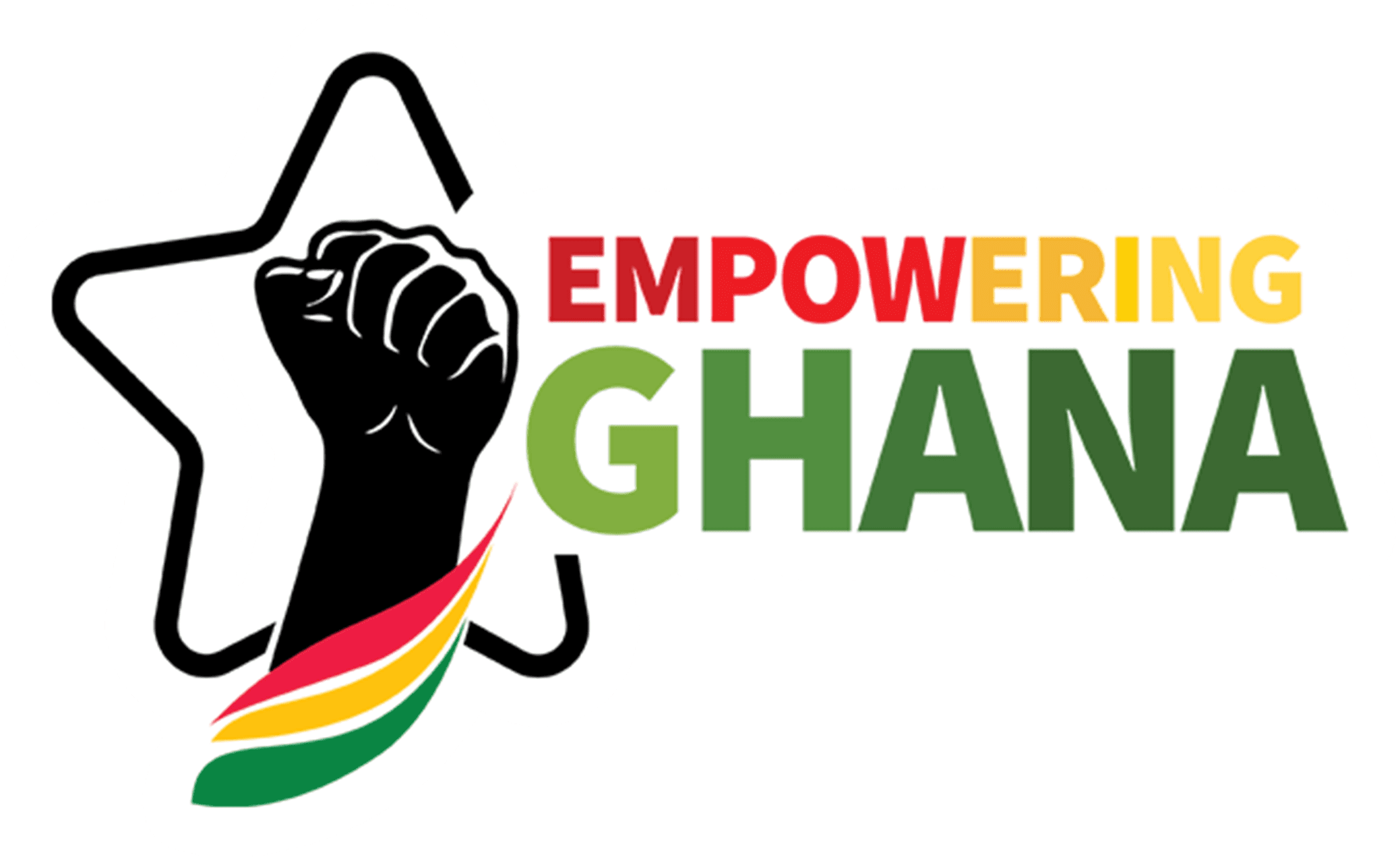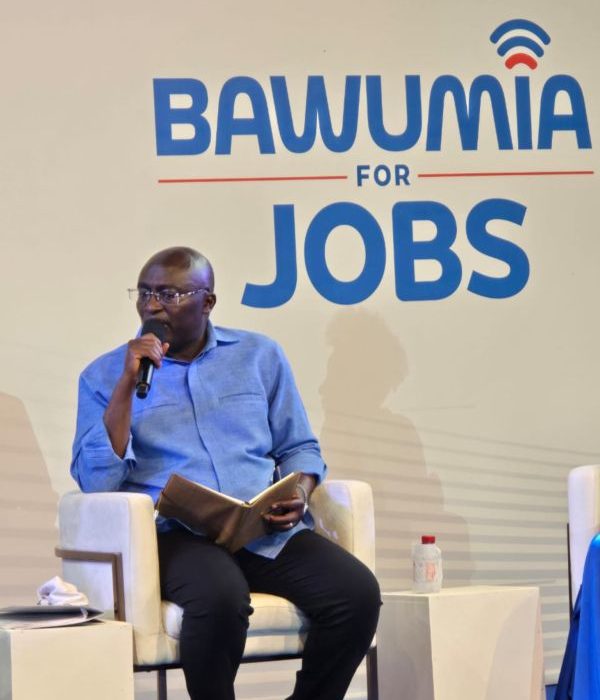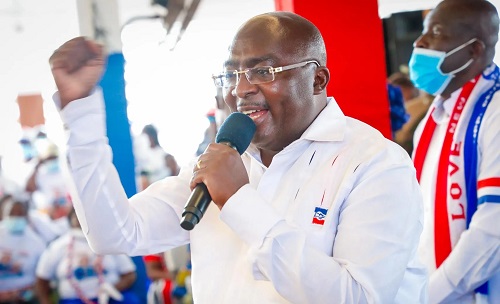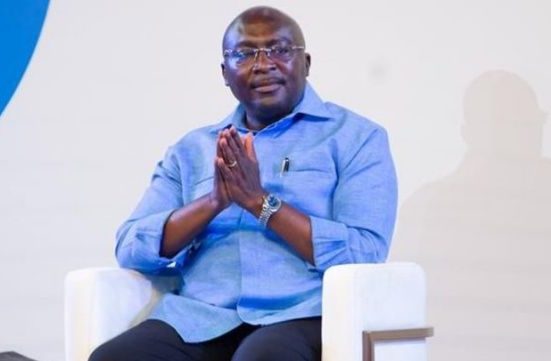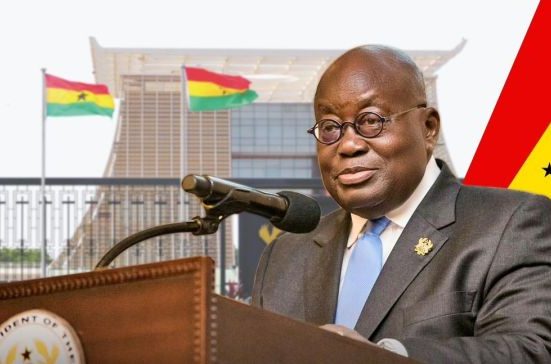Last Sunday, Vice President Dr. Mahamudu Bawumia engaged with Ghanaian youth at the Borteyman Sports Complex in Accra, where he shared his vision to prioritize youth development and welfare if elected President.
Dr. Bawumia emphasized his commitment to empowering the youth through three main pillars: education, skills training, and job creation.
He began by highlighting education as a key driver for youth progress, pledging substantial investments to broaden access to education at all levels, with a particular focus on tertiary education, building upon the successes of Free SHS. He closely linked skills training to education, stressing the importance of technical and vocational education and training (TVET) and outlining plans to equip 1 million young Ghanaians with digital skills.
Building on these foundations, Dr. Bawumia announced his proposed policies to generate millions of jobs nationwide.
With education and marketable skills, the next step is to thrive in an economy that can offer a wide range of well-paying jobs, whether through entrepreneurship, self-employment, or formal employment.
he stated.
Here are the eight initiatives Dr. Bawumia outlined:
1. Promote Economic Growth for Job creation.
Dr. Bawumia underscored the importance of a stable economy to encourage business growth and job opportunities. His administration would create a conducive environment for private sector growth, which he referred to as the “engine of growth,” and leverage partnerships with the private sector to lower government spending on infrastructure.
2. Expand Public Infrastructure
Focusing on youth employment, Dr. Bawumia pledged to expand public infrastructure, including completing the Agenda 111 hospital projects, which are expected to generate approximately 72,000 jobs in the health sector.
3. Support Local Businesses for Job Creation
Dr. Bawumia proposed a “Buy Ghana First” policy, prioritizing local goods and services in public procurement. He also committed to establishing an SME Bank to address financing needs of small and medium enterprises, which employ over 80% of Ghanaians. Additional incentives would include tax credits for start-ups and affordable power for industries through a restructured tariff system.
4. Implement a Simplified Tax System.
Dr. Bawumia plans to introduce a simplified, business-friendly tax regime with a flat tax rate for individuals and SMEs, and a predictable flat-rate duty on imports to help stabilize prices. Port charges would be aligned with regional standards, particularly with Togo, ensuring competitive duties at Ghanaian ports.
5. Agricultural Sector Reforms for Job Creation
Committed to achieving food security and job creation, Dr. Bawumia promised to modernize agriculture by creating agricultural zones in each region, investing in technology to reduce post-harvest losses, and establishing district mechanization centers. The Agricultural Development Bank (ADB) would expand support for agribusinesses involved in value-added products.
6. Reform the Housing Sector for Employment Opportunities
Dr. Bawumia’s housing initiative would emphasize public housing through private partnerships, following the Singaporean model. This approach, he noted, would generate millions of jobs in trades such as masonry, plumbing, and electrical work. He also proposed to streamline the mortgage market by digitizing land records and simplifying the process for establishing land titles.
7. Revamp the Mining Sector for Job Creation
In the mining sector, Dr. Bawumia committed to promoting environmentally sustainable small-scale mining, aiming to help these businesses grow. His government would provide training, financial support, and capacity-building resources to aid this transformation.
8. Build a World-Class Digital Economy
Dr. Bawumia’s largest job initiative would be a digital skills training program for 1 million young Ghanaians, preparing them for job opportunities in Ghana and beyond.
I envision Ghana building the digital talent needed for the Fourth Industrial Revolution,
he said. He also proposed a Fintech Fund with US$100 million seed capital to support Ghanaian startups developing exportable tech solutions.
Dr. Bawumia assured that these initiatives are designed to “create the vast array of jobs that young Ghanaians seek and deserve.” With the December 7, 2024 election approaching, he reaffirmed his commitment to delivering a comprehensive plan for meaningful youth employment and economic progress.
